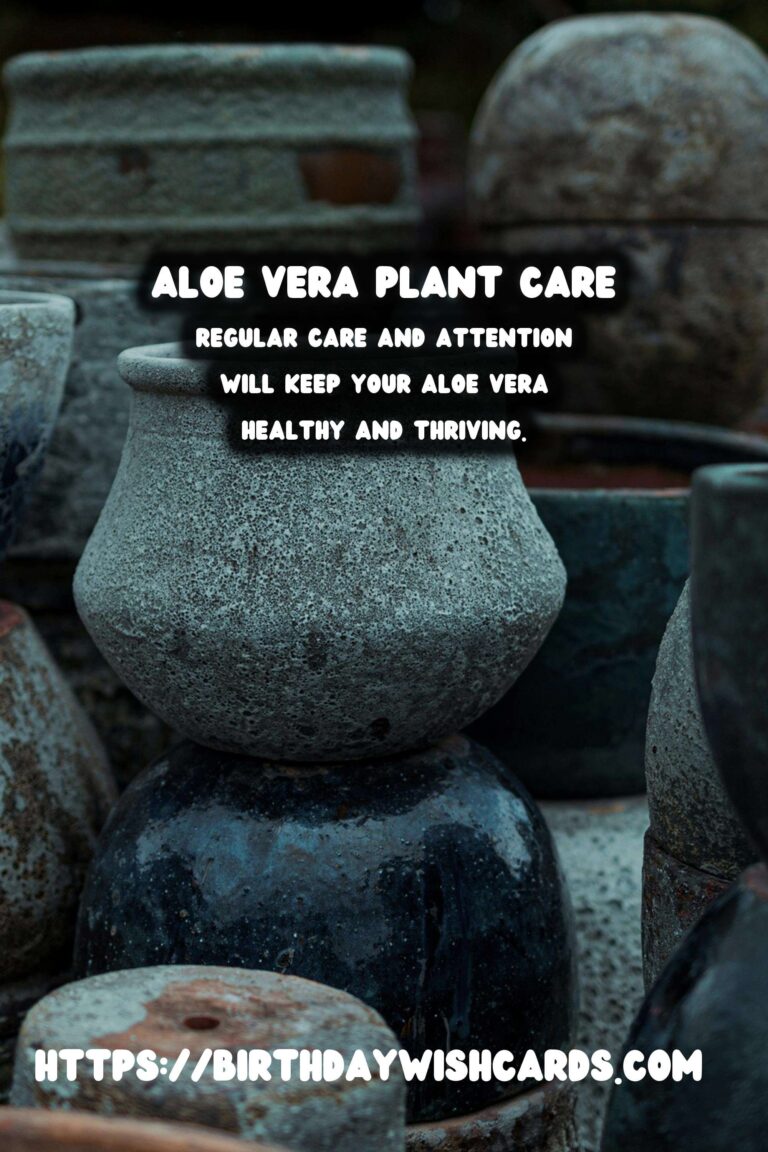
Aloe Vera is a popular succulent known for its medicinal properties and ease of care, making it a favorite among gardeners and indoor plant enthusiasts. However, like any other plant, Aloe Vera can be susceptible to pests and diseases that can hinder its growth and vitality. Understanding how to manage these challenges is crucial for maintaining healthy Aloe Vera plants.
Common Pests Affecting Aloe Vera
Aloe Vera plants are generally resilient, but they can occasionally fall victim to common pests. These pests can cause significant damage if not addressed promptly. Here are some of the most common pests that affect Aloe Vera:
1. Aphids
Aphids are small, soft-bodied insects that feed on the sap of plants. They are often found on the undersides of leaves and can cause yellowing and wilting of Aloe Vera leaves. To manage aphid infestations, regularly inspect your plants and wash them with a strong stream of water to dislodge the insects. In severe cases, insecticidal soap or neem oil can be effective.
2. Mealybugs
Mealybugs are small, white, cottony insects that cluster on the leaves and stems of Aloe Vera plants. They suck sap from the plant, leading to stunted growth and leaf drop. To control mealybugs, remove them with a cotton swab dipped in alcohol or use horticultural oils to treat the affected areas.
3. Spider Mites
Spider mites are tiny, spider-like pests that thrive in hot, dry conditions. They feed on plant sap, causing discoloration and stippling on leaves. To prevent spider mite infestations, ensure your Aloe Vera receives adequate humidity and spray the leaves with water regularly. Insecticidal soap can also be used to manage spider mites.
Diseases That Affect Aloe Vera
While Aloe Vera is relatively disease-resistant, certain conditions can make it susceptible to infections. Here are some common diseases that can affect Aloe Vera:
1. Root Rot
Root rot is a fungal disease caused by overwatering or poor drainage. It leads to the decay of the plant’s roots, causing the plant to wilt and die. To prevent root rot, ensure your Aloe Vera is planted in well-draining soil and water it only when the soil is completely dry.
2. Leaf Spot
Leaf spot is a fungal disease that results in brown or black spots on the leaves of Aloe Vera. It is often caused by overwatering or high humidity. To prevent leaf spot, reduce watering and improve air circulation around the plant.
3. Anthracnose
Anthracnose is another fungal disease that affects Aloe Vera, causing sunken lesions on the leaves. It thrives in warm, wet conditions. To manage anthracnose, remove affected leaves and apply a fungicide if necessary.
Preventive Measures for Healthy Aloe Vera
Prevention is key to maintaining healthy Aloe Vera plants. Here are some tips to help prevent pest and disease issues:
- Ensure good air circulation around your plants to reduce humidity and prevent fungal diseases.
- Use well-draining soil and pots with drainage holes to prevent waterlogging and root rot.
- Regularly inspect your plants for signs of pests or diseases and act quickly to address any issues.
- Avoid overcrowding plants to minimize the spread of pests and diseases.
By understanding the common pests and diseases that affect Aloe Vera and taking preventive measures, you can keep your plants healthy and thriving. Regular care and attention will ensure that your Aloe Vera remains a beautiful and beneficial addition to your home or garden.
Aloe Vera is a popular succulent known for its medicinal properties and ease of care. Common pests affecting Aloe Vera include aphids, mealybugs, and spider mites. Root rot, leaf spot, and anthracnose are common diseases that can affect Aloe Vera. Preventive measures include ensuring good air circulation and using well-draining soil. Regular care and attention will keep your Aloe Vera healthy and thriving. 
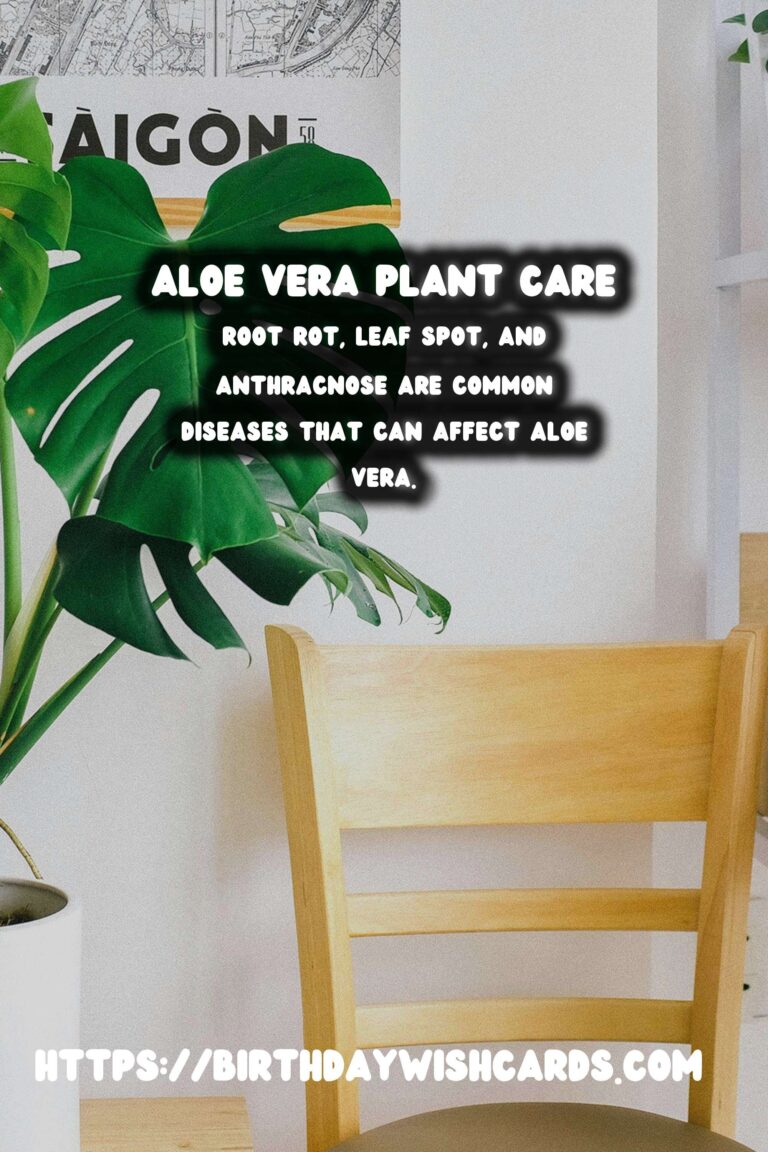
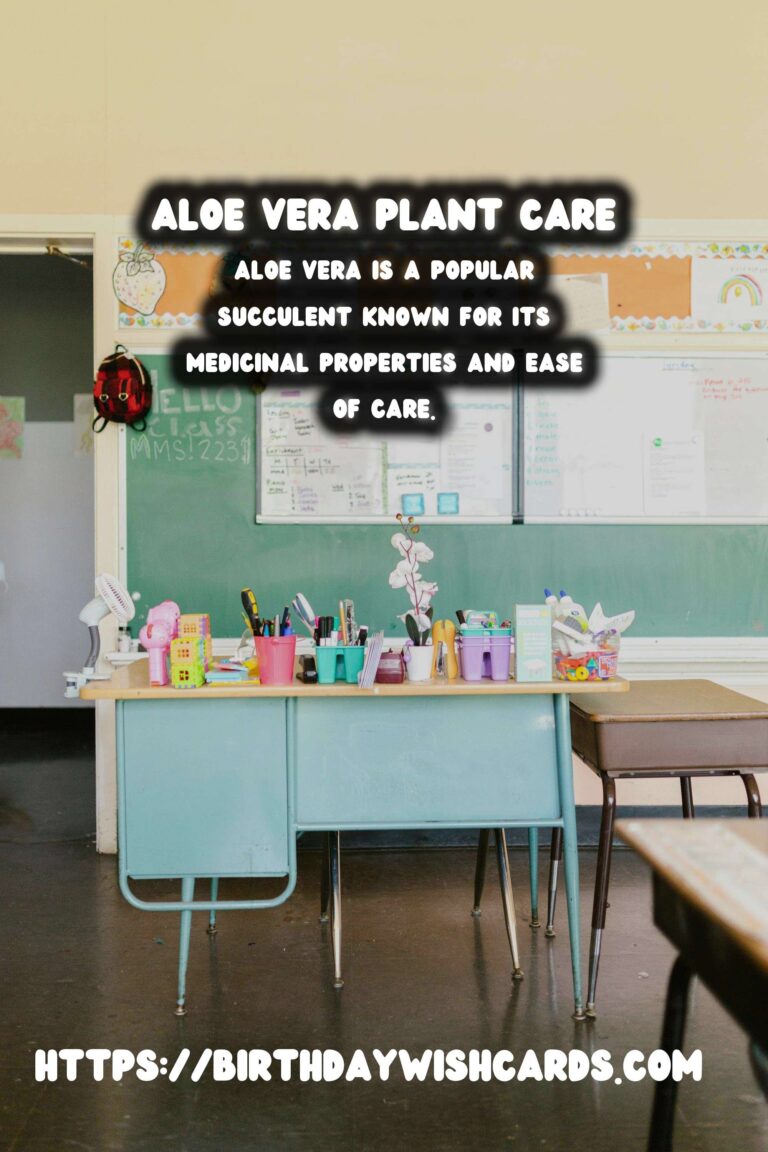
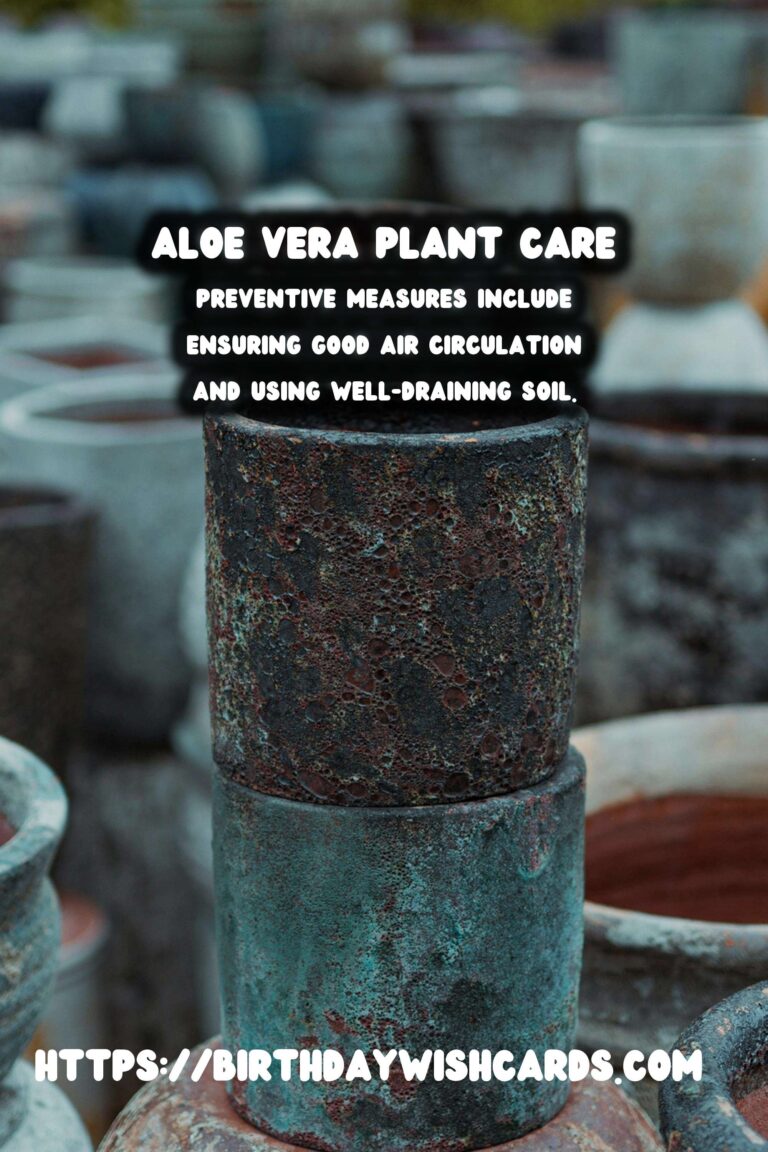

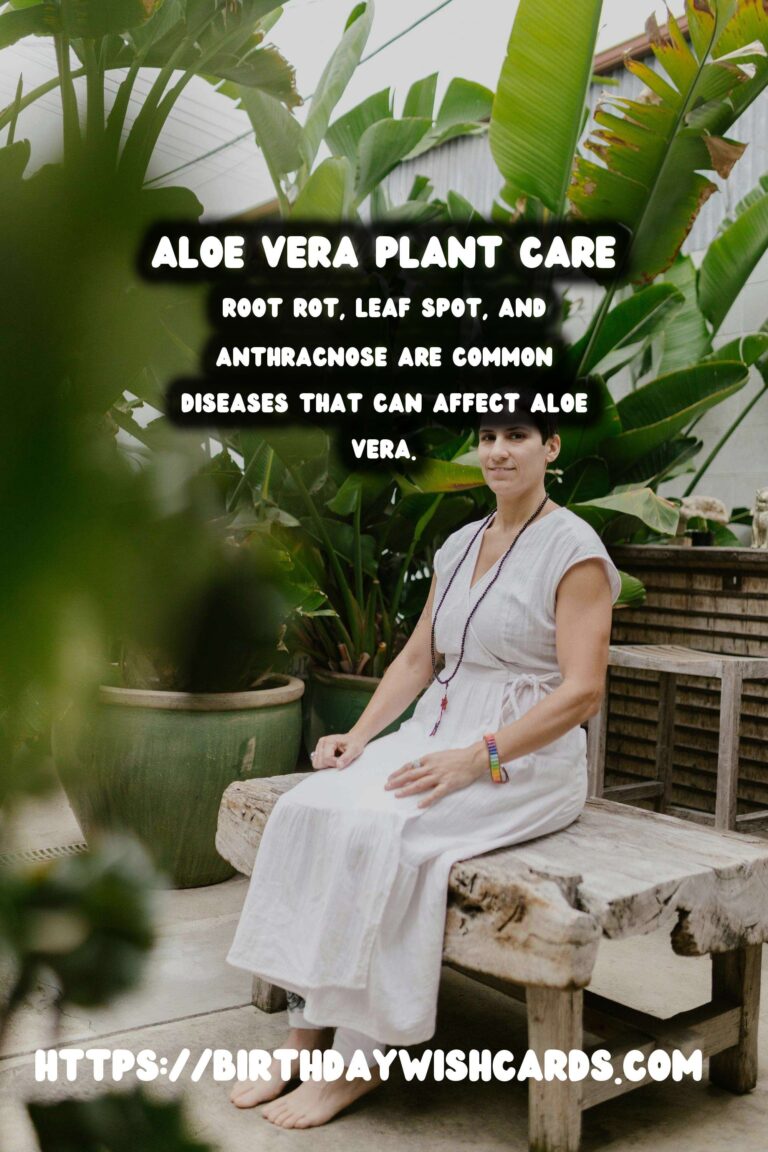
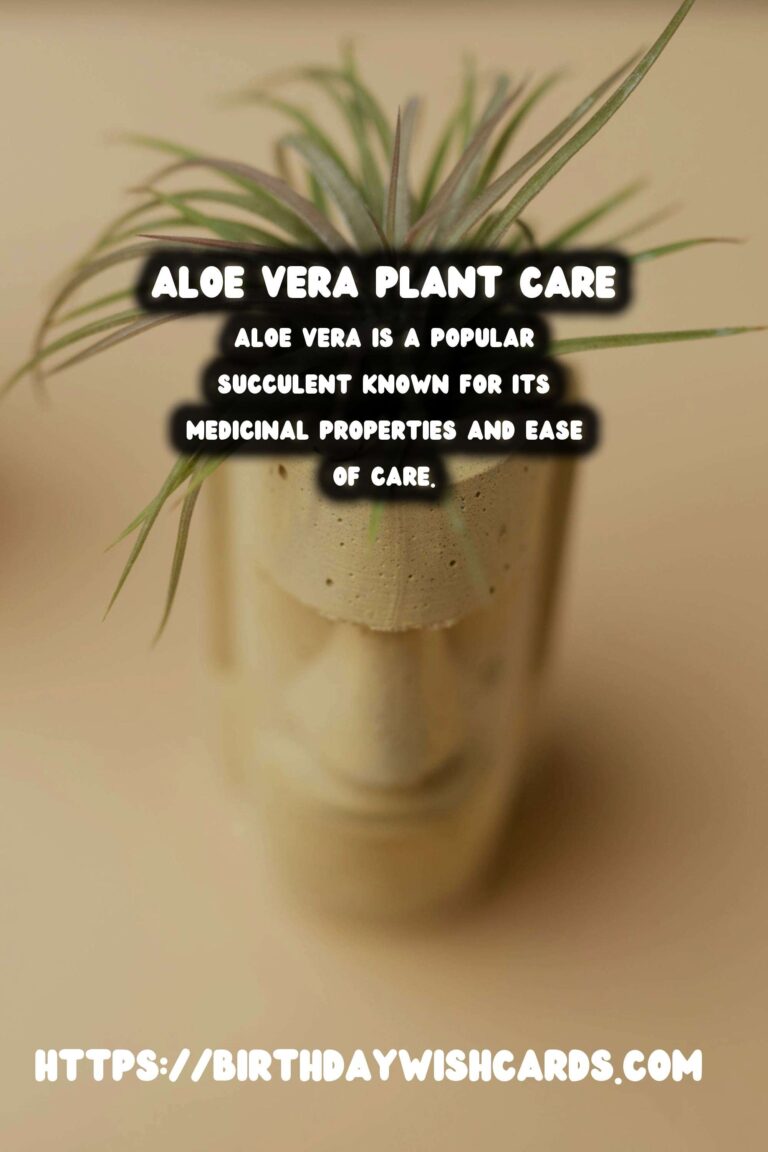
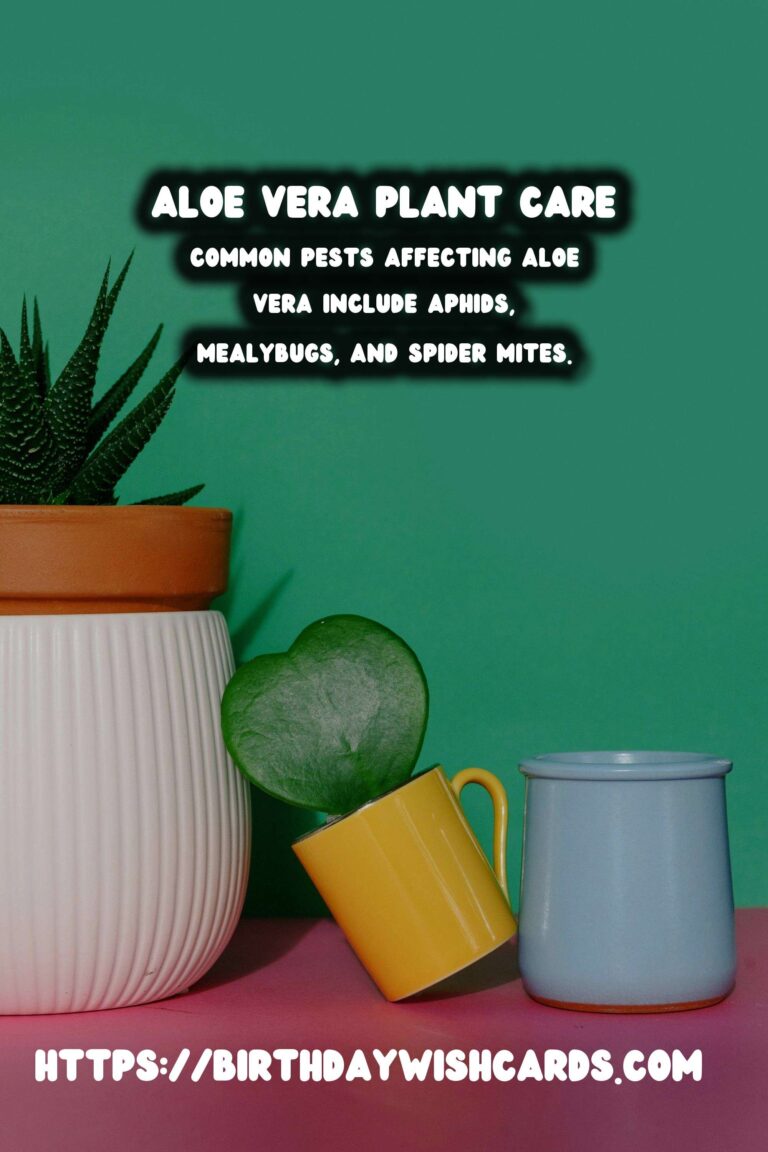
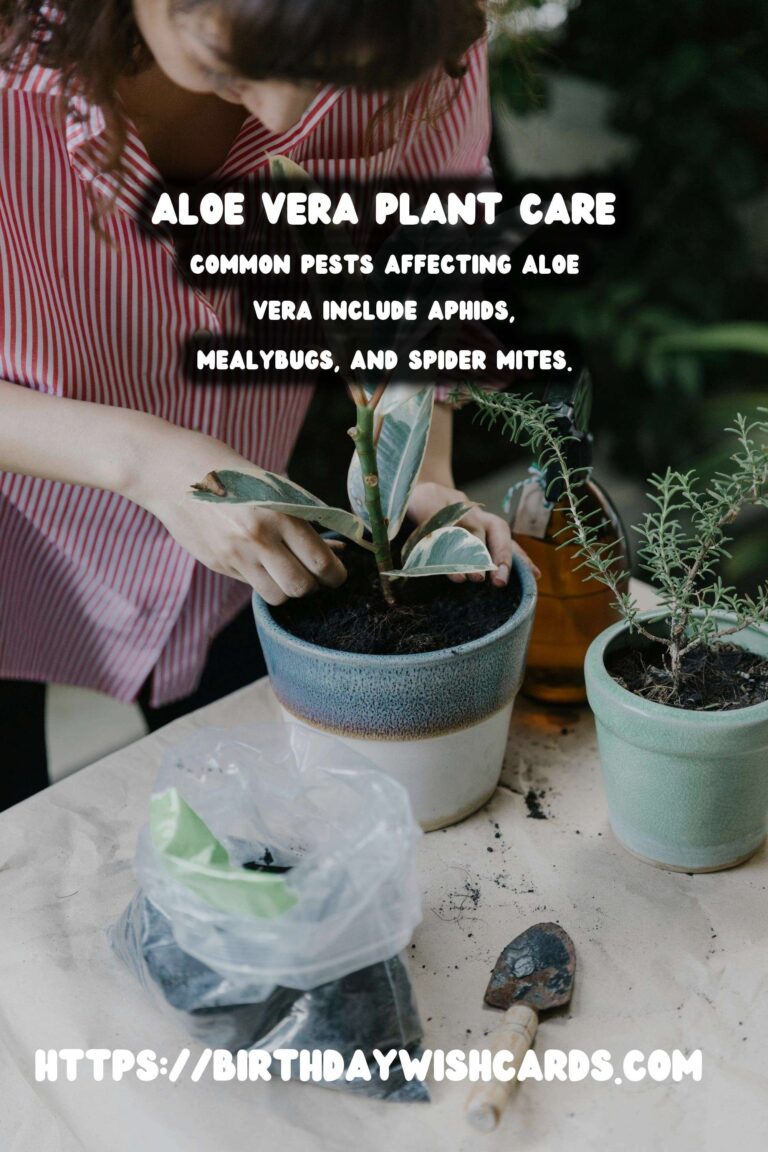
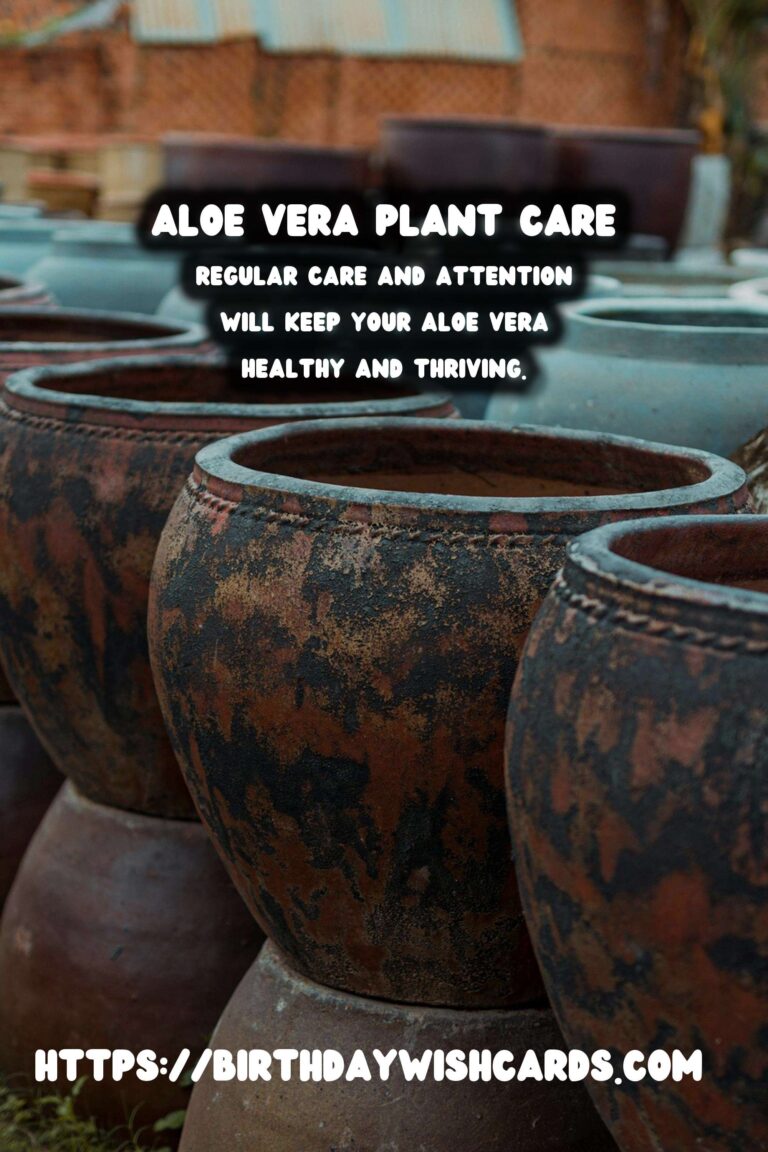
#AloeVera #PlantCare #GardeningTips #Succulents #PestControl




